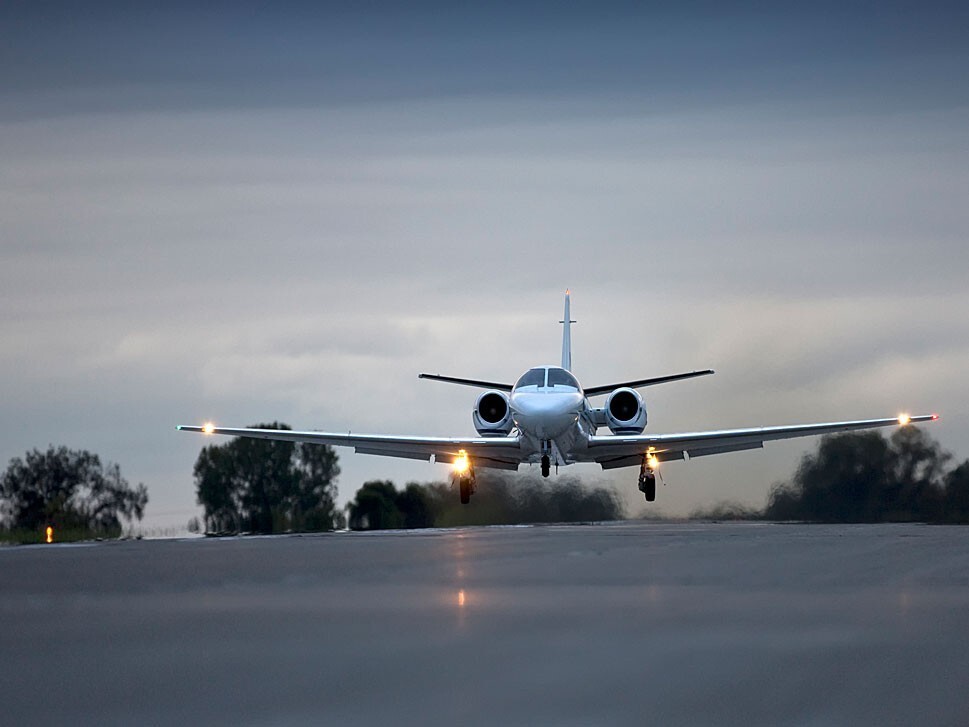- 16 Aug 2023
- Andre Fodor
- Flight Departments
Pilot Development Tips From a BizAv Veteran
For those seeking to advance or enhance their career in the Business Aviation cockpit, experienced Chief Pilot and Aviation Director Andre Fodor highlights the key attributes to focus on for continual development...
Back to Articles
As corporate pilots, our careers ultimately involve the transportation of corporate executives, high-profile individuals, and time-sensitive cargo to their required destinations. This could be regionally or internationally.
Having amassed years of experience, I have experienced demanding principals, a wide variety of trip challenges, and the impact of changing economies on Business Aviation. And along the way, I’ve learned several invaluable lessons that shaped both my career and personal life.
Like most aspiring pilots, my original goal was to find a path into the airlines. At that time, the pilot job market was depressed, reeling from failing airlines and a shrinking US Air Force. Seasoned pilots occupied the entry-level cockpit seats that I should have been vying for. Ultimately, it was the tight job market that led me into flying corporate jets.
With time, I realized that corporate flying was the right fit for my personality. But even the landscape of corporate flying has changed!
Whereas in the past, most aircraft cabins resembled corporate board rooms, today’s cabins are more akin to modern living rooms. Our charges have discarded business suits for golfing attire and fashionable casual clothing in the pursuit of business and pleasure.
And as the cabins have changed, so too has the corporate pilot’s job description. The successful corporate pilot is not only proficient in piloting, but knowledgeable of what drives wealthy individuals into private flying.
Fashion, trendy destinations, fine dining – all help elevate the flying experience to match or exceed expectations. The tailored flight experience has become part of our job. But what are some of the specific traits that I believe are necessary for today’s corporate pilot to succeed?
Following are a few of my observations, which I list with the qualification that each is complimentary, and should be viewed as a building block to the next...
Adaptability and Flexibility
Private aviation is characterized by its unpredictable nature. The whole point of having a private jet is to fly where you want, when you need. Private jet owners can be highly responsive to the needs of key clients and business leads when using their aircraft as business tools, and may need to travel at the drop of a hat.
Therefore, those of us charged with flying the private jet must be adaptable and flexible, ready to fly at a moment’s notice.
Attention to Detail
Whether you’re flying at short notice or have a few weeks to prepare for a trip, the need for the highest standard of safety doesn’t change.
It is, therefore, paramount for corporate pilots to plan and execute every aspect of the flight with detail, to the same high standards, irrespective of time to prepare. This will include addressing all issues proactively, rather than reactively.
Communication Skills
Effective communication is vital for private jet pilots, whether that is communicating with passengers, cabin crew or ground personnel. Clear and concise communication fosters a smooth operation and enhances customer experience.
Of course, when communicating with passengers, you can expect to meet many different personalities and it will be vital to handle these with confidence and clarity. High- profile individuals expect a high level of professionalism from the entire flight crew, so the way you communicate aboard a corporate jet matters.
Situation Management
Corporate pilots need to be adept at crisis management, as unforeseen challenges will inevitably arise. The ability to remain calm under pressure and make informed decisions is critical.
Training and well-developed response plans contribute to a pilot's preparedness and operational success, and those serious about developing their career in the cockpit should be proactive and invested in developing these.
Professional Development
On the subject of being proactive and invested, aviation is dynamic and advancements in technology and changes in regulations occur often.
It is, therefore, vital for corporate pilots to engage in recurrent training programs, attend seminars, and obtain additional certifications to contribute to their ongoing professional development.
Networking
Building a strong network within the Business Aviation community opens the doors to new opportunities and enhances professional growth. Taking the chance to engage with colleagues, industry professionals, and aviation organizations is the best way to stay informed about potential job openings, industry trends, and best practices.
Above all, Maintain a Healthy Pilot Work-Life Balance
The demands of Business Aviation inevitably create irregular schedules, long hours and unpredictability, which can be difficult to control.
Nevertheless, it’s vital for private jet pilots to prioritize finding ways to keep a healthy work-life balance, ensuring physical and mental well-being. After all, a rested and healthy pilot is better equipped to handle the challenges that may arise on the job.
Always focus on family life and make the best of your time away from the hangar. Above all, have a positive outlook, keep stress low, and invest in your relationships. A happy, healthy pilot will usually be an alert, sharp pilot in the cockpit capable of exacting the highest levels of professionalism.
Read more Flight Department related articles HERE
Related Articles
- 25 Jul 2023
- Mario Pierobon
- Flight Departments
- 13 Oct 2021
- Andre Fodor
- Flight Departments


